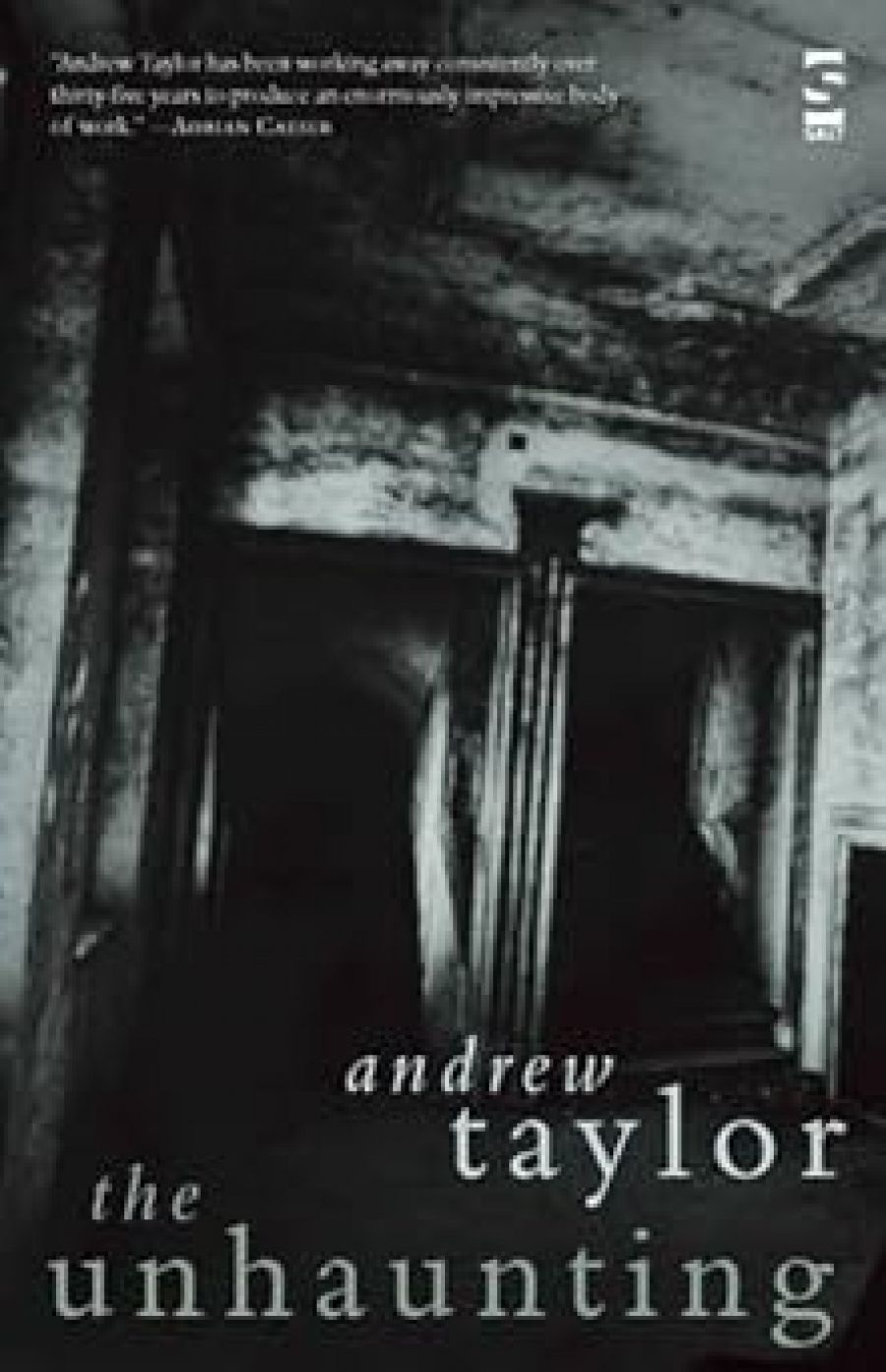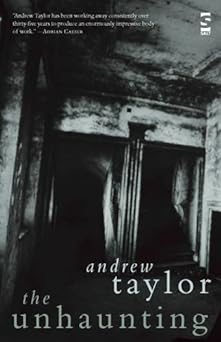
- Free Article: No
- Contents Category: Poetry
- Review Article: Yes
- Article Title: Dark whimsy
- Online Only: No
- Custom Highlight Text:
Andrew Taylor’s latest book reprises themes common to many of his earlier poetry collections – movement between the antipodes and Europe; the natural landscape; affinities with music – but also, as the title suggests, themes of haunting and unhaunting, visitation and absence. Taylor was ill with cancer in 2003, and his confrontation with death has strongly informed The Unhaunting. The book is divided into five sections, and while the trajectory is far from linear, a sense of moving from darkness to light, from threat to release, unfolds.
- Book 1 Title: The Unhaunting
- Book 1 Biblio: Salt Publishing, $26.95 pb, 91 pp
- Book 1 Cover Small (400 x 600):

‘Metamorphoses: The Pinnacles, WA’ continues to tease out the way in which this ‘shifting shadow’ – evoking, perhaps, cancer invading the body’s landscape – is an elided other (‘she’s only present when your eye / is elsewhere …’), while ‘Waiting’ and ‘Keeping the Pool Clean’ explore the limbo of awaiting medical advice, the sense of being subject to outside forces, and recourse to the quotidian. It would be a mistake, however, to read these poems as an indulgent ‘travels with my illness’. Images of shadow, inclement weather and the mysterious, barely apprehended female presence flirt with poetic cliché, but Taylor generally avoids romanticising infirmity, and is never maudlin. As in much of his earlier work, fissures in landscape share the page with those of the human body and mind. Poems such as ‘Cliffs’ and ‘Sand Dollars’ continue Taylor’s fascination with coastal reformation, reminding human subjects of their impermanence. These new poems revisit the interests explored so fruit-fully in Taylor’s 1995 award-winning collection Sandstone (UQP).
The second section, ‘Maybe One Morning …’, is dedicated to exquisite translations of poems from Eugenio Montale. Over the years, Taylor has made a number of translations from Italian and German, and the fit here is good. Montale’s concern with the seasons, darkenings, mortality, with the natural world inhabited by the urban, with what is ‘hardly visible’ (‘Dora Markus’), all find parallels in Taylor’s poems. As in ‘Punta del Mesca’, someone other than the first-person narrator is often evoked by place: a person divorced from the narrator by circumstance or death. The selection finishes with two marvellously evocative poems: ‘Lights and Colours’ and ‘The Carillon Clock’.
‘The Vanishing’, the collection’s third section, is a mixed bag. Vanishing comes with a liner’s silent disappearance in the fog; rain, with its ability to both give and take away; the absence of a loved one. While the collection is darker in tone than some of Taylor’s earlier work, his engagement with whimsy also comes to the fore here. ‘Movement’, with its refrain of lines beginning ‘for movement …’, pushes the ridiculous in a manner reminiscent of satirist John Clarke’s poetic parodies. ‘Sleuth and Lynx’, a longer poem in eight parts rich in rhyme, rhythm and puns, seemingly takes its cue from Edward Lear’s ‘The Owl and the Pussy-cat’. While some poems in this collection can be rather literal – they lack the subtle metaphor and measured similes of the best poems in Sandstone, for example – ‘Sleuth and Lynx’ appears to dissect the search for truth by exploring a largely discredited (as an endnote explains) theory of negative matter. This may be deliberate, but the weird science can bamboozle.
The final two sections see the poet moving from China to Poland to Germany, from childhood to old age and death. Death and its administration – we glimpse ‘a road sign / to Auschwitz’ (‘Driving to the Airport’) – create a haunting, yet also an ‘unhaunting’. The collection’s title poem recalls the poet’s aged mother-in-law wandering ‘from cellar to attic steps’ in the night – haunted and haunting – but who, in death, is ‘a spirit at rest’. Unhaunting also evokes withdrawal from the shadow of illness, and the best of the later poems display Taylor’s skilful rendering of the intersection between the natural and human worlds, and the renewed vigour that can follow reprieve. Rain ‘brings out / a sudden blossom of umbrellas’ (‘Friedhöfe’), while surf ‘draws you / like an undertow from where you’ve parked’ (‘Surf’). It is a pity, then, that the later sections are punctuated with notably weaker poems. For example, the suite ‘For Music’ contains Taylor’s marvellously suggestive ‘Verdi’s “Four Sacred Pieces”’. But this is soon followed by ‘Choral’, featuring ‘a stunner whose beauty / far outshines her voice’, a poem romanticising and objectifying the female figure and largely un-relieved by a sense of irony about the male gaze. This contrasts with the wonderful delicacy of many other poems, of which the ‘Dedication’, at the beginning of the book, is indicative.
Nevertheless, there is enough here to make us grateful that Taylor has emerged from his own haunting and, to appropriate a line from his music suite, hope for further ‘rhapsodies of rhythm and rapture’.


Comments powered by CComment